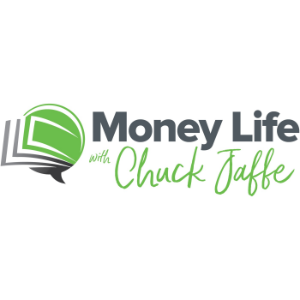
Money Life with Chuck Jaffe
Markets and Investing
Money Life with Chuck Jaffe is leading the way in business and financial radio. The Money Life Podcast is a daily personal finance talk show, Monday through Friday sorting through the financial clutter every day to bring you the information you need to lead the MoneyLife.
Location:
Groton, MA
Description:
Money Life with Chuck Jaffe is leading the way in business and financial radio. The Money Life Podcast is a daily personal finance talk show, Monday through Friday sorting through the financial clutter every day to bring you the information you need to lead the MoneyLife.
Twitter:
@moneylifeshow
Language:
English
Contact:
245 Reedy Meadow Road Groton, MA 01450 (774) 262-0949
Website:
http://moneylifeshow.com/
Wells Fargo's Wren: Setbacks are buying opps on the road to 7,500 in '26
Duration:00:58:06
Johnson Financial's Ceci: Rally is ride-or-die on earnings growth
Duration:00:58:59
Westwood's Helfert: Not your father's market, but the rally's not done yet
Duration:01:01:58
'The Vixologist' says the market is still 'fussing around' with uncertainty
Duration:01:01:13
BondBloxx' Bianco says the Fed could be done after one more cut
Duration:01:00:14
TCW's Whalen: Recession odds down, but volatility rising
Duration:00:59:07
Research Affiliates' Arnott: Investors lose billions to bad indexing
Duration:01:01:26
AssetMark's Chan: Markets will stay 'favorable' well into 2026
Duration:01:01:40
IAA's Cofrancesco: Fed will cut, but questions if they'll be felt on Main Street
Duration:01:03:08
Rosenberg says the economy is softening and the bubble is in place
Duration:01:01:04
3EDGE's Cucchiaro: 'Market melt-up' will lead to an avalanche in stock prices
Duration:01:00:25
Sanjac Alpha's Wells: This can't go on forever, but ride carefully for now
Duration:01:01:07
Economist Imas: Consumers and investors are hard-wired to make mistakes
Duration:01:01:19
Commodities trader on the wild action in coffee, gold and other prices
Duration:00:59:53
Valuation investor says his stock pick right now is cash and time
Duration:01:04:28
Veteran journalist Greenberg on how 'abnormal is the new normal'
Duration:00:59:59
Simplify's Green sees 'a bubble on top of a bubble' for A.I. and recession ahead
Duration:01:03:28
Economists lower recession odds and raise growth projections
Duration:01:01:13
Cambria's Faber: U.S. market is the world's most expensive, and that story ends ugly
Duration:00:56:27
Key Advisors' Ghabour: Bubbling market could inflate another 30% before bursting
Duration:00:58:58